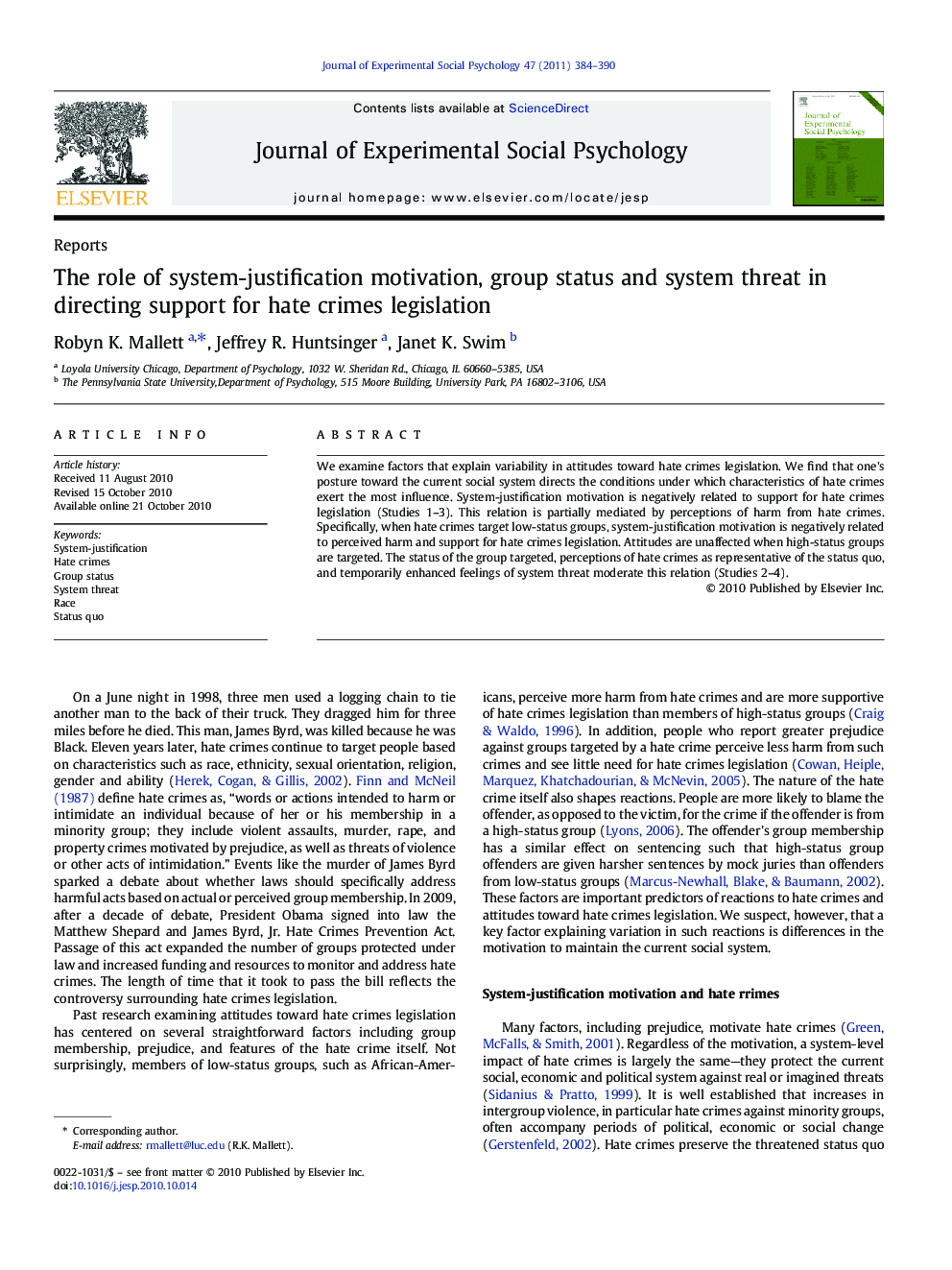| Article ID | Journal | Published Year | Pages | File Type |
|---|---|---|---|---|
| 10468656 | Journal of Experimental Social Psychology | 2011 | 7 Pages |
Abstract
We examine factors that explain variability in attitudes toward hate crimes legislation. We find that one's posture toward the current social system directs the conditions under which characteristics of hate crimes exert the most influence. System-justification motivation is negatively related to support for hate crimes legislation (Studies 1-3). This relation is partially mediated by perceptions of harm from hate crimes. Specifically, when hate crimes target low-status groups, system-justification motivation is negatively related to perceived harm and support for hate crimes legislation. Attitudes are unaffected when high-status groups are targeted. The status of the group targeted, perceptions of hate crimes as representative of the status quo, and temporarily enhanced feelings of system threat moderate this relation (Studies 2-4).
Keywords
Related Topics
Life Sciences
Neuroscience
Behavioral Neuroscience
Authors
Robyn K. Mallett, Jeffrey R. Huntsinger, Janet K. Swim,
